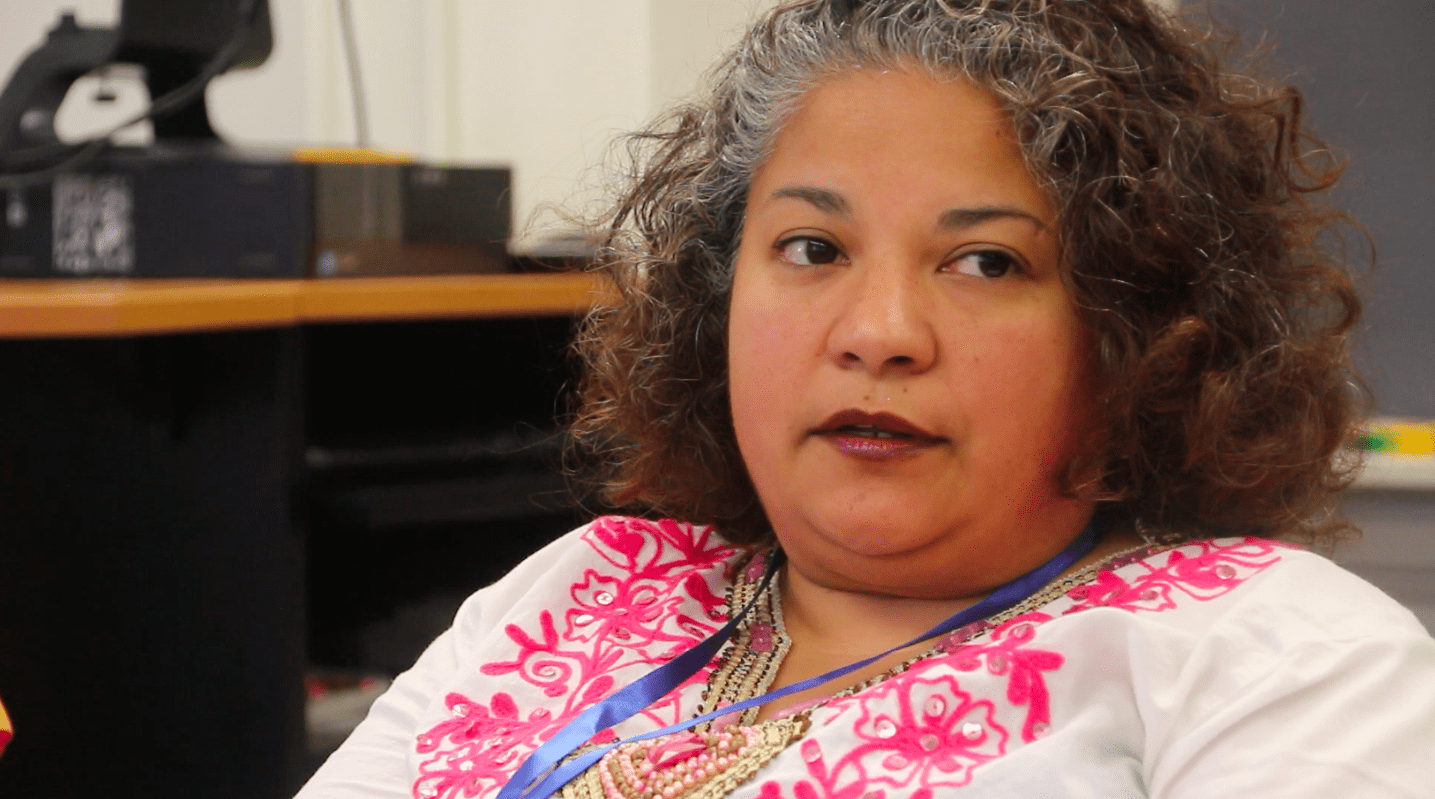
National Association of Chicano and Chicana Studies 2018 Tejas Foco Conference
Greg Harman
SEGUIN, Texas—Before it was a hashtag, resistance was a necessary fact of life for millions. Whether against internal dictatorships, institutional racism in “democratic” states, or the abuses of patriarchy and sexualized violence, women—particularly women of color—have had no choice but to find ways of standing.
There have also been leaps of triumph even inside such adversity—often in hidden but culture-shifting acts of creation. Rebellious acts such as writing.
For a panel of poets gathered at the National Association of Chicano and Chicana Studies 2018 Tejas Foco Conference, it is unsurprising that resistance is a recurrent theme. But in the Xicana experience, for women who not only move between worlds, are torn between worlds, but are constructed of these fissures, dialogues of oppression and liberation take on particular nuance and intimacy.
As Gloria Anzaldua writes of the mestiza experience in Borderlands/ La Frontera: The New Mestiza:
“Not only does she sustain contradictions, she returns the ambivalence into something else.”
The visions that return from these inner quests answer the questions of many. How to stand when the land is being sliced by walls and indigenous people of la frontera targeted? When women’s bodies are under attack? When one’s infinite identities are denigrated by the scapegoating ‘pinche 45,’ as one poet described Trump, saying that she has excised his name from her vocabulary? When the earth itself is in revolt against the very same forces of domination and extraction?
These self-described “hybrid writer/educator/activists” do the work of visibilizando víctimas, making the victims visible. They do this by documenting unseen histories and by bringing forward their own unique perspectives on the most obvious of offenses seemingly already understood. (No al muro.)
Poets include Carolina Monsiváis, Kamala Platt, Viktoria Valenzuela, and (Deceleration co-editor) Marisol Cortez.
At turns serving as witness to the struggles of others, then bringing unique voice to internal and individual contestations, the panel “Visibilizando Victimas: Poetic Action and Analysis Amid Cascading Crises” inspired a class full of students from across the region at last weekend’s conference.
Valenzuela offered caution when it came to the work of social transformation:
“It’s not going to be easy. It’s not going to be fun. It’s not going to be trending. It’s hard work. And they’ve already done the work to dismantle us. So we undo … or redo … where we are standing.”
Their readings and a concluding dialogue with the students follow.
Carolina Monsiváis
Kamala Platt
Viktoria Valenzuela
Marisol Cortez
Session Q&A
-30-
Greg Harman is founder and co-editor of Deceleration.
Carolina Monsiváis—poet, historian, and author of Somewhere Between Houston and El Paso, Elisa’sHunger and Descent—will open with poems and hybrid pieces that witness and document her work as an advocate and counselor working with survivors of domestic violence and sexual assault, work still relevant in the wake of current events and a presidency marred in misogyny. Monsiváis helped found the community-based poetry collective Resistencia en la Frontera: Poets Against Border Walls, which seeks to document the love of the borderlands and resistances to violence by the state.
Kamala Platt teaches online for the School of Humanities, Arts and Cultural Studies in Arizona State University’s New College, and previously taught at UTPA in the RGV. She lives and works on San Antonio’s Westside and at the Meadowlark Center in Kansas. Her works include Weedslovers: Ten Years in the Shadow of September (2014) and On the Line (2010)—which continue to speak to the current “time of great, great hate,” by nuancing current threats and historicizing current concerns. Resistance to the border wall-building in the RGV a decade ago, for example, offers cautionary tales that rebuke Trump’s current wall-building. Her work documents and exemplifies a poetics of both crisis and of resistance by responding to calamities, violence and injustice experienced by marginalized parts of the region and planet.
Viktoria Valenzuela is a San Antonio-based poet, educator with Gemini Ink’s Writers In Communities program, and organizer of San Antonio’s 100 Thousand Poets for Change event. Her current writing centers on the politics of motherhood and embodiment, with her poetry attempting to capture a snapshot moment of life imitating or honoring nature. Valenzuela believes the profound answers of how to be human lies in following the examples gifted to us in the nature of the universe and all its many pieces. Her work also seeks to explain humanity as simply a thread that connects the earthly and minute to the boundless and universal or divine.
Marisol Cortez, Deceleration co-editor and San Antonio-based writer and community scholar, read from The Bird Church, a collection centered around a series of documentary poems that tell the story of the displacement of Mission Trails, a mobile home community on the banks of the San Antonio River that in 2014 was cleared to make way for luxury apartments. Based on interviews with nearly half of the families displaced from Mission Trails, Cortez wrote these poems alongside an effort with the group Vecinos de Mission Trails to produce a case study analysis that would document the impacts of displacement. While the group decided against including poems in the final report, the omitted poems remain an irreducible problem, leaving open the question of where (or whether) poetic forms of analysis and action might comfortably reside alongside traditional forms of scholarship and organizing.








